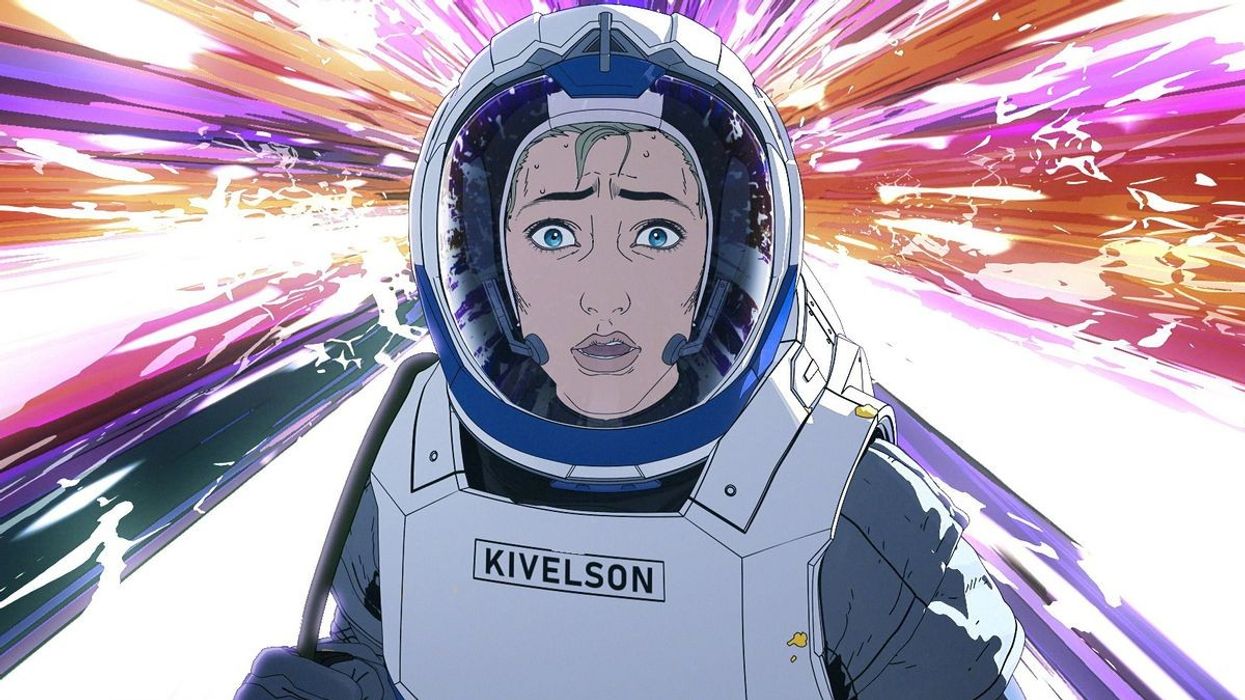David Fincher Chats with Directors Tim Miller and Alberto Mielgo About 'Love Death + Robots Volume 3'
Have you watched Love Death + Robots Volume 3 yet?

Easily one of my favorite things Netflix has done is give money to extremely creative animators and directors to showcase their often experimental short films in the Love Death + Robots series. The work they've churned out is exquisite, with something for everyone, even niche tastes. The first two volumes were excellent, and there were high hopes for the third volume, which was released last week.
Thankfully, it did not disappoint. It had stories of zombies, imperialism, sentient crabs, and more.
They even got some amazing directors like Jennifer Yuh Nelson, Alberto Mielgo, David Fincher, and Tim Miller to contribute to this season as well. If you haven't watched the season yet, or even if you have, now you can watch along with the aforementioned directors and listen to their commentary.
Check out the trailer from Netflix.
Want to watch with the directors' commentary?
They did a Clubhouse where they watched the season together and talked about the highs, lows, and weird stuff when it came to making each story.
Check out these timecodes for stories you can hear on the app.
- 1:04:14 - Alberto Mielgo talks about where the inspiration for Jibaro came from, since it is the only episode in the series not based on a pre-existing script.
- 1:05:55 - Fincher and the show's creator Tim Miller discuss why Fincher waited until this season to take the director's seat, since he had already been involved in previous seasons as a producer.
- 1:08:50 - Miller discusses sci-fi authors' work he would want to adapt in future episodes of the show.
- 1:11:23 - Mielgo, Fincher, and Miller discuss the hardest decisions they had to make while working on the episodes of the new season that they directed.
David Fincher chats with Tim Miller and Alberto Mielgo
Aside from those timecodes, the directors also did a Q&A where they talked to audience members. We listened and are bringing you the best answers.
Fincher has been a producer on the series since the first season, but he has never stepped into the director's chair. This season that changed, but why?
Fincher said, "There's nothing nefarious at all... The first time we were doing it I think I was shooting and I wasn't available and I desperately wanted to do it in Volume 2, but in terms of scheduling they do take a long time, so by the time Volume 2 started we knew that we were going to be [doing] 'Bad Traveling' we just didn't know when we were going to slot it in, so about halfway through the production of Volume 2 it became fairly evident that we weren't going to be able to make another 18 episodes and get it out within any kind of reasonable time frame and so we didn't want to hold back, we wanted to put out what we had so we called it Volume 2 and we put those nine episodes out. But again, there's nothing particularly interesting in the answer, but it was scheduling."
Miller followed up by clarifying there were also corporate reasons.
"It was also, for Season 1, we weren't allowed for various legal reasons to use any of the stories we originally picked to be a part of it..." Miller said. "And then I figured out a way to get those cleared so that we were allowed to use them, and that's a lot easier. I mean—David—there's a whole bunch of stories that we have ready, but to find one that speaks to his particular sensibilities would've been more difficult than having one that we already knew he really liked, because he had picked 'Bad Traveling' right from the get-go, when we were doing 'Heavy Metal.' So that being available was also a good reason for him to jump into the pool."
Aside from this stuff, the guys also had to worry about storytelling and the visuals in animation. Those decisions were not taken lightly. They were planning and strategizing from the second the script locked, working closely with animators to get their vision.
That means lots of hard decisions too.
Mielgo said, "The thing when you work in animation is that there is not [one] difficult decision, every decision is extremely difficult because 3D is very challenging, and technology many times fucks it up. So, to be honest, every decision is so key... that I don't have any specific memory of a moment that was difficult or more difficult than the others, so I couldn't choose. Animation doesn't make any sense if you think about it, it's how they created this one drawing after the other in order to create the illusion of life, it's absolutely madness that we go this way. And still, we love it and we do it, but we have to pay all the consequences because there's a hell of a lot."
To get more answers to questions and listen to their commentary on their own episodes, check out the Clubhouse and let us know what you think!











